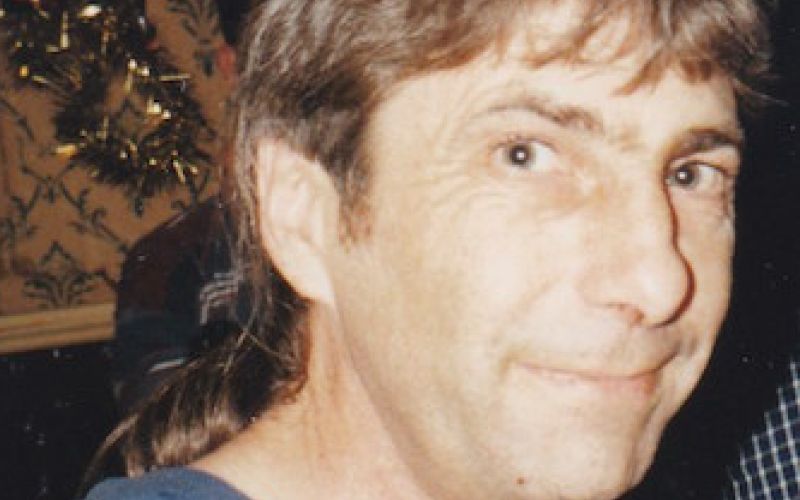The sister of a disabled man who died after being left destitute by having his benefits sanctioned is to seek the help of the high court after a coroner refused for the second time to hold an inquest into his death.
David Clapson (pictured), who had diabetes, died in 2013 as a result of an acute lack of insulin, three weeks after having his jobseeker’s allowance (JSA) sanctioned.
Because he had no money, he couldn’t afford to pay for electricity that would have kept the fridge where he kept his insulin working, in the height of summer, and he had also run out of food.
But despite the circumstances of his death, and clear links with the sanctions system, no inquest was ever held.
Now Clapson’s sister, Gill Thompson, is to ask the high court for a judicial review of the coroner’s decision not to hold an inquest.
Her announcement came as new Department for Work and Pensions figures showed a sharp rise in the number of sanctions imposed on claimants of the out-of-work disability benefit, employment and support allowance.
In May 2016, there were 1,199 decisions taken to impose a sanction on an ESA claimant, but in June that shot up to 1,749. In January, the figure was as low as 900.
The number of JSA sanctions also rose, although not as steeply, from 12,067 in May to 14,049 in June.
Thompson has been campaigning for an inquest to be held in a bid to secure answers and change the sanctions system she believes led to her brother’s death.
She has now set up a crowdfunding account to pay for the latest stage in her legal battle, and to take the case to the high court.
She previously raised the money to pay for the earlier stages of the legal action through more than 900 crowd-funded donations.
Her latest bid has already raised more than £5,000 of the initial £10,000 target in less than 48 hours.
Her solicitor, Merry Varney, from human rights lawyers Leigh Day, is arguing that Clapson died an “unnatural death” because of the benefit sanction imposed on him shortly before he died.
Earlier this month, Varney wrote to the Hertfordshire senior coroner, Geoffrey Sullivan, to ask him to overturn the decision not to hold an inquest.
But he has now written back to say he will not order an inquest.
Sullivan says in his letter that “the evidence does not support either a direct or contributory causal link between the imposition of the benefit sanction and Mr Clapson’s death.
“In addition… there is no evidence as to whether the benefit sanction was imposed properly or not.”
Thompson said she found the coroner’s decision “hard to understand”, because her brother “had no food in his stomach” at the time of his death and “was in the middle of a sanction”.
She said the reason she was campaigning was not to “cause trouble” but “just to put something right”.
She said: “I’m not a troublemaker. I’m not doing it to be awkward or for revenge.”
Varney said: “We believe there is huge public interest in an investigation into the role played by the imposition of a benefit sanction in Mr Clapson’s death.”
She said Clapson had not been entitled to an immediate hardship payment after being sanctioned, while Department for Work and Pensions (DWP) guidance on diabetes “does not in our view properly recognise the importance of food and access to chilled insulin for people like David”.
She added: “Despite our client’s best efforts, there has been no open and thorough investigation of this matter at all.
“There is an urgent need to assess the risks posed by benefit sanctions to those who receive them, and the decision-making of DWP staff when imposing benefit sanctions on vulnerable and at-risk individuals.”
Clapson’s case was mentioned in prime minister’s questions earlier this month by Labour leader Jeremy Corbyn, who described his and other such deaths as “institutionalised barbarity”.
An autopsy held after Clapson’s death found his stomach was empty, and the only food left in his flat in Stevenage was six tea bags, a tin of soup and an out-of-date can of sardines. He had just £3.44 left in his bank account.
But there has never been an inquest, even though DWP admitted that it knew he was insulin-dependent.
Meanwhile, work and pensions secretary Damian Green announced this week that jobseekers who are homeless or have a mental health condition will now be able to access hardship payments immediately if they are sanctioned.
The payments are supposed to act as a safety net to cover day-to-day living costs, and are issued immediately to claimants who meet certain criteria, such as having children, or certain long-term health conditions.
Other claimants cannot claim hardship payments for the first 14 days of a sanction.
Green said the change was expected to help about 10,000 people over four years from 2017-18.

 Chair of government’s ‘economic inactivity’ board says he wants to ‘ramp down’ use of benefit sanctions and strict conditions on sick and disabled people
Chair of government’s ‘economic inactivity’ board says he wants to ‘ramp down’ use of benefit sanctions and strict conditions on sick and disabled people Disabled activists and allies defy bureaucrats to ensure delivery of 650 copies of ‘DWP violence’ book to MPs
Disabled activists and allies defy bureaucrats to ensure delivery of 650 copies of ‘DWP violence’ book to MPs Campaigners welcome election defeats for DWP ministers, but frustration as key trio survive
Campaigners welcome election defeats for DWP ministers, but frustration as key trio survive